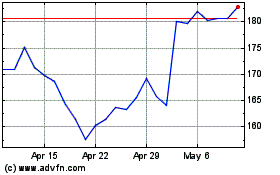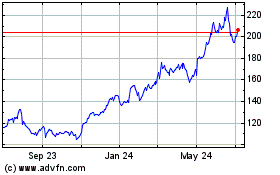BRUSSELS—For Google, it's a tale of two continents.
On one side of the Atlantic, European competition authorities
unveiled on Wednesday a second set of charges against the Alphabet
Inc. subsidiary, this time over its Android operating system. On
the other side, Canada dropped its probe against the company this
week, following U.S. regulators who have so far found that Google's
conduct raises no antitrust concerns.
Why the difference? Many Americans assume it is largely
explained by a protectionist European response to the dominance of
U.S. technology companies.
European Union officials vehemently deny any such effort.
Experts in competition law say the trans-Atlantic divide is
explained by a host of other factors, including contrasting legal
processes, distinct views on the free market and different
benchmarks for what constitutes anticompetitive behavior.
True, Google and the other U.S. tech giants don't have the
political sway in Brussels that European officials believe they
have in Washington, where they have provided an important growth
story since the 2008 financial crisis.
But a bigger contrast lies in the greater power that resides in
the competition authority in Europe and in the person of the
competition commissioner, Danish politician Margrethe Vestager, who
took over in November 2014.
Since Ms. Vestager took over, her department has targeted
America's biggest tech companies, including Amazon.com Inc. and
Qualcomm Inc., with a slew of antitrust probes. Some major U.S.
corporations are among companies that have found their tax deals
with European governments under scrutiny using her department's
powers to investigate illegal state aid.
Google has been her highest-profile target. She announced
charges last year related to Google's comparison shopping service,
a case started by her predecessor. But the Android case was
launched under her watch and carries her personal signature.
In its various investigations into Google's conduct, the
commission has clashed with Google over the tech giant's alleged
maneuvers to exploit its powerful position to prioritize the
company's own services and impede rival efforts. In Android and
through the company's shopping service, it views Google as hurting
consumers by limiting their options.
But in response to the commission's charges against Android,
Google general counsel Kent Walker rejected the claims, saying the
mobile operating system was "good for competition and good for
consumers."
In her speeches on her approach to the role, Ms. Vestager has
emphasized fairness, suggesting she is looking out for the underdog
who may find it hard to enter markets dominated by behemoths.
In an interview with The Wall Street Journal earlier this month,
she said that the law should ensure small players have "a fair
fighting chance."
"Even though some [companies] are big, they are not above the
law," she said.
In the U.S., antitrust regulators have a high bar, needing to
prove a criminal case in a court that can mete out jail sentences
as well as fines. Class-action lawsuits can multiply the financial
damage to those found guilty, also increasing the deterrent to
anticompetitive behavior.
In the EU, the process is administrative. Nobody will go to jail
and the worst outcome will be fines, of up to 10% of company
revenues, and demands to change conduct.
An appeal is possible to the EU's top court, but lawyers say the
court tends to look for legal and procedural errors rather than to
create precedent for future competition cases.
David Anderson, Brussels-based partner at Berwin Leighton
Paisner LLP, says some in the U.S. are uncomfortable with a process
in which they see the commission acting as "prosecutor, judge and
jury" in relation to antitrust investigations, decisions and
fines.
Nicolas Petit, a professor of competition law at the University
of Liè ge, said the U.S. approach is more free-market driven than
the European. EU case law on the abuse of market dominance is
significantly stricter than in the U.S.
He said the EU focuses more on protecting small companies from
being put out of business by bigger rivals. "They're more worried
about the big size of some companies," he said. "Big is bad."
A remote risk of anticompetitive consequences is enough to find
liability in Europe, whereas U.S. officials must satisfy a higher
burden of proof, he said.
"If you're a dominant company operating in Europe, there's a
presumption against you that any aggressive behavior, like
aggressive pricing for example, is abusive," he said.
Write to Natalia Drozdiak at natalia.drozdiak@wsj.com and
Stephen Fidler at stephen.fidler@wsj.com
(END) Dow Jones Newswires
April 20, 2016 20:45 ET (00:45 GMT)
Copyright (c) 2016 Dow Jones & Company, Inc.
QUALCOMM (NASDAQ:QCOM)
Historical Stock Chart
From Mar 2024 to Apr 2024

QUALCOMM (NASDAQ:QCOM)
Historical Stock Chart
From Apr 2023 to Apr 2024
